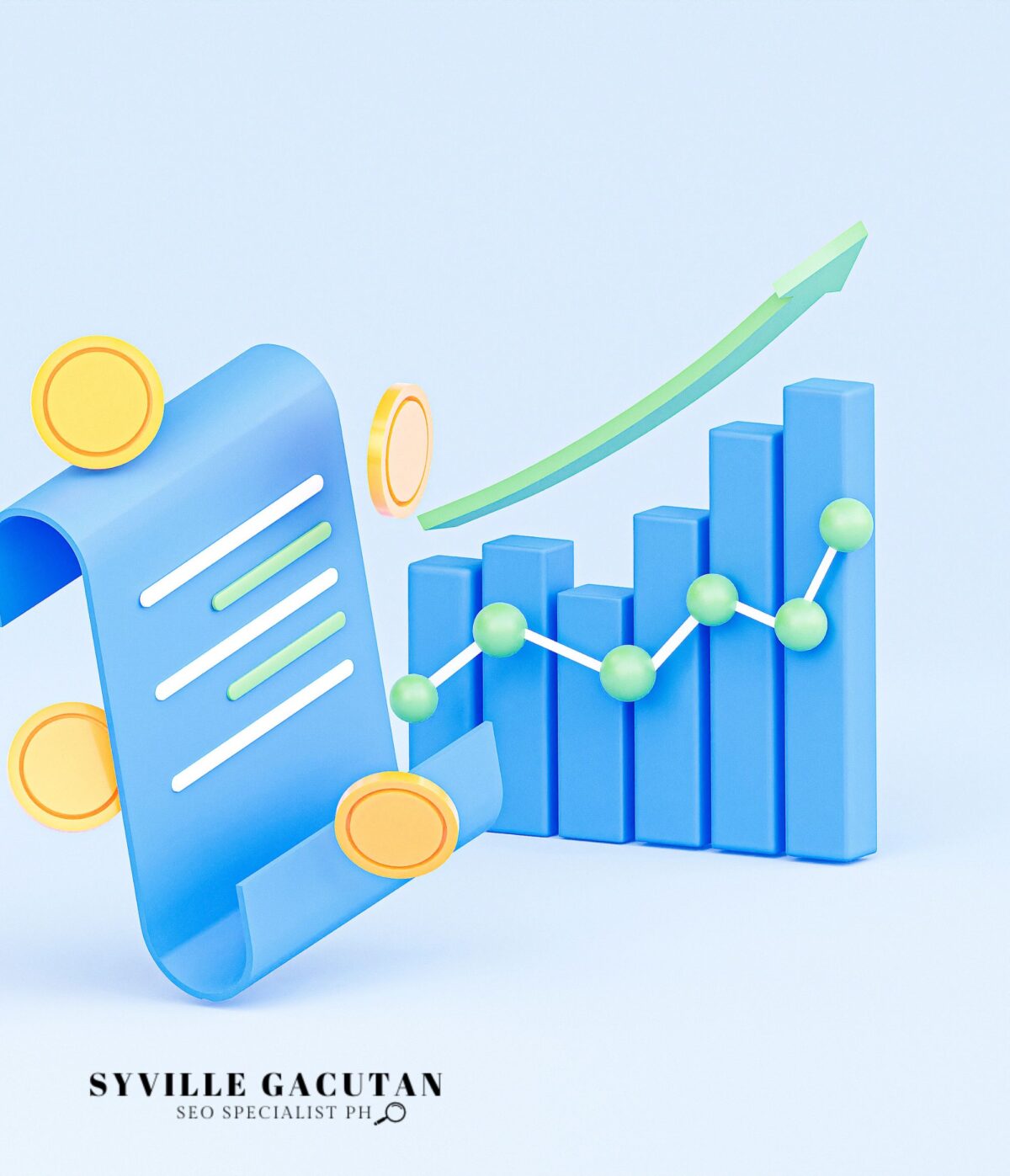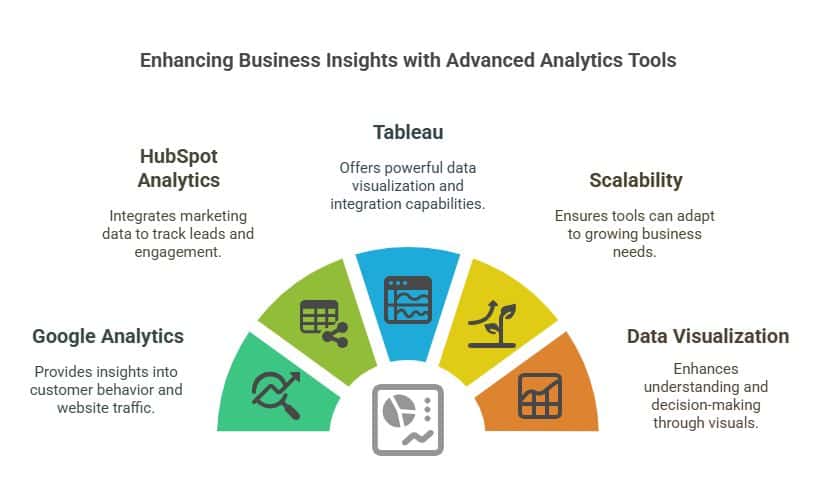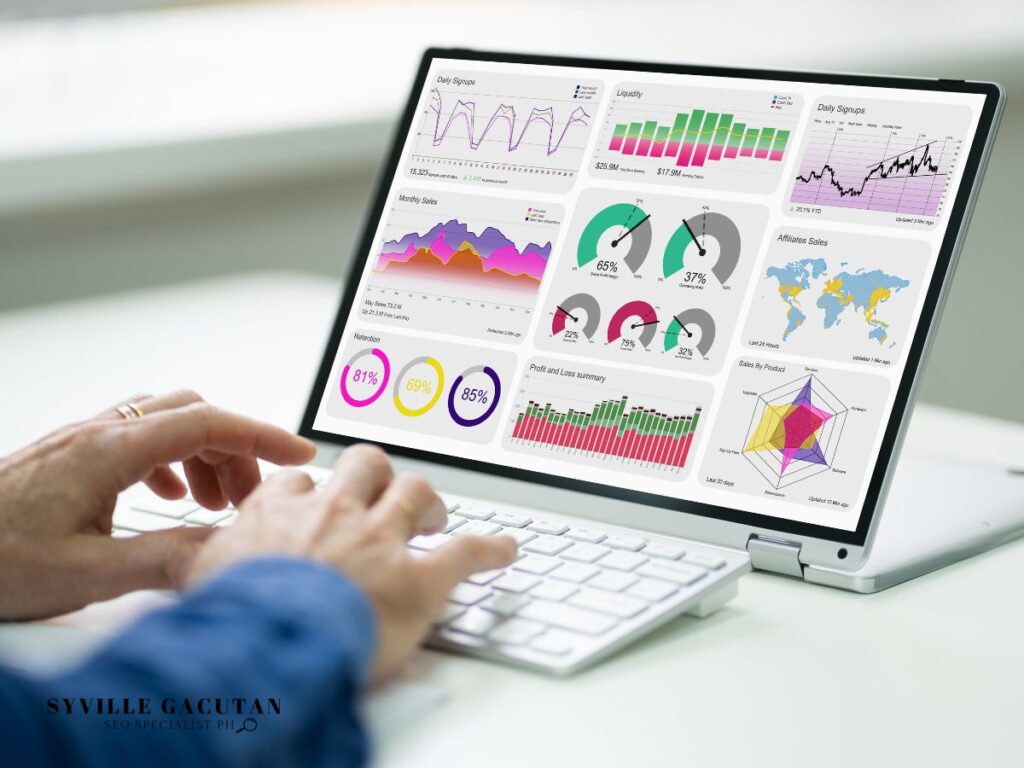
3 Dependable Analytics Tools for Small Business Success
Small companies wanting achievement must employ trustworthy data analysis tools. Google Analytics offers insights into customer behavior, website traffic, and user engagement, leveraging AI for advanced analytics. HubSpot Analytics excels in optimizing inbound marketing by centralizing data from multiple channels, providing detailed customer journey insights. Tableau excels at transforming intricate data into visually appealing & understandable formats. This tool empowers small business owners to effectively communicate complex information through compelling visualizations. Choosing the right tool involves evaluating scalability, ease of use, and integration. Understanding how these tools maximize business potential paves the way for informed strategic decisions and potential growth opportunities.
Key Takeaways
- Google Analytics provides details about how customers act. It monitors the number of visitors to a website and the rate at which they take desired actions. This information aids in making informed choices.
- HubSpot Analytics brings together marketing data. It monitors website traffic email results, and social media interactions for lead generation.
- Tableau offers powerful data visualization capabilities. It creates interactive dashboards and customizable visuals. Also Tableau seamlessly integrates with various data sources.
- Scalability, ease of use, and integration are crucial for choosing analytics tools that align with evolving business needs.
- Displaying information through visuals like graphs and dashboards helps people understand data faster. It also supports making choices based on that data.

Google Analytics

Google Analytics is an essential tool that helps small businesses analyze and improve their online performance in today’s digital world. This powerful tool analyzes customer actions. It helps business owners understand their customers better. With this knowledge entrepreneurs can make smart choices to increase profits and expand their companies.
Google Analytics is a powerful tool that helps businesses understand how people interact with their websites. It provides detailed information about website visitors, including where they come from, what pages they view and what actions they take.
Analytics is crucial for any business that wants to thrive in today’s competitive marketplace. Google Analytics offers a sophisticated data visualization interface, making complex data more accessible and actionable. By transforming raw data into clear visual representations, businesses can quickly identify trends, patterns, and anomalies, leading to more strategic decision-making.
This capability empowers small business owners to allocate resources more effectively, tailor marketing strategies, and enhance customer experiences.
The analytics tools provided by Google Analytics extend beyond mere data collection. Advanced features such as audience segmentation, real-time reporting, and custom dashboards allow businesses to delve deeper into their analytics, uncovering insights specific to their unique objectives.
As a result, companies can align their operational strategies with consumer preferences, ensuring sustained relevance and competitiveness.
Moreover, Google Analytics is continually evolving, integrating artificial intelligence and machine learning to further enhance its analytics capabilities. This continuous advancement ensures that small businesses remain at the cutting edge of digital analytics, equipped with the tools necessary to harness the full potential of their online platforms.
In essence, Google Analytics is not just a tool but a strategic partner in the journey toward business success.
HubSpot Analytics

While Google Analytics offers exceptional insights into web traffic and user behavior, HubSpot Analytics provides a comprehensive suite of tools designed specifically for inbound marketing and sales optimization. This powerful platform is tailored to elevate small business success by offering an integrated approach to data analytics.
HubSpot Analytics stands as a beacon for those seeking to harness the power of business intelligence, delivering actionable insights through its user-friendly data analytics interface. HubSpot Analytics excels in transforming raw data into strategic business intelligence that small businesses can leverage to refine their marketing efforts and drive revenue growth.
By centralizing data from various channels, this suite of analytics tools allows small businesses to gain a holistic view of their marketing performance. The platform’s robust capabilities include tracking website activity, email marketing effectiveness, and social media engagement, all essential components for small business success in today’s digital landscape.
One of HubSpot’s standout features is its ability to provide detailed customer journey insights, enabling businesses to understand how leads are generated, nurtured, and converted. Its user-friendly data analytics dashboards and customizable reports empower business leaders to make informed decisions quickly.
Tableau
Tableau stands out as a leading data visualization tool that empowers small businesses to transform complex data into easily digestible, interactive visual insights. This analytics tool is renowned for its robust data visualization capabilities, enabling users to create comprehensive and dynamic dashboards. As a powerful analytics solution, Tableau enhances decision-making processes, providing small businesses with the agility and insight necessary to thrive in competitive markets.
One of Tableau’s standout features is its ability to seamlessly integrate with other tools, making it an invaluable component of any business intelligence platform. This interoperability allows businesses to consolidate data from various sources, ensuring a holistic view of organizational performance. Moreover, Tableau’s intuitive interface requires minimal technical expertise, making it accessible to users at all skill levels.
The following table outlines key features of Tableau that underscore its value:
| Feature | Benefit | Impact on Business |
| Data Connectivity | Integrates with numerous data sources | Comprehensive insights |
| Interactive Dashboards | Real-time data visualization | Informed decision-making |
| User-Friendly Interface | Minimal technical skills required | Increased productivity |
| Customizable Visuals | Tailored analytics presentations | Enhanced communication |
| Scalability | Grows with business needs | Long-term solution |
Tableau’s adaptability and performance make it an essential tool for small businesses seeking to harness the full potential of their data. Its powerful analytics capabilities ensure that decision-makers have access to timely, relevant information, driving strategic initiatives and fostering growth. By leveraging Tableau, small businesses can transform their data into a strategic asset, propelling them toward success in an ever-evolving business landscape. Through its innovative features, Tableau remains a cornerstone of modern analytics, empowering businesses to achieve their goals with precision and confidence.
Choosing the Right Tool
Selecting the appropriate analytics tool is a critical decision that can significantly influence a small business‘s ability to leverage data effectively. In an era where data drives success, identifying the right analytics platforms for small business is paramount. The process of choosing a data analytics tool must be strategic, as it directly affects how businesses transform raw data into actionable insights, ultimately guiding pivotal business decisions.
When evaluating tools for data analytics, small businesses must consider several key factors. Firstly, the tool’s scalability is essential. As a business grows, its data demands will expand, necessitating a platform that can evolve accordingly.
Moreover, ease of use is crucial; a user-friendly interface ensures that team members at all levels can efficiently interpret data without requiring extensive technical training.
Furthermore, integrating the chosen tool with existing systems is a critical consideration. Seamless integration minimizes disruptions and ensures a steady flow of data, allowing business leaders to make informed decisions swiftly.
Additionally, cost-effectiveness cannot be overlooked. While some advanced analytics tools may offer robust features, they might not be financially viable for a small business. Therefore, balancing functionality with affordability is vital.
Maximizing Tool Benefits

Maximizing the benefits of analytics tools involves a strategic approach that empowers small businesses to fully harness the potential of their data. To achieve small business success, it’s crucial to integrate data analytics into every aspect of your operations, ensuring that insights align with your business goals.
By leveraging advanced analytics tools, businesses can transform raw data into actionable intelligence, fostering informed decision-making and ultimately driving growth.
To effectively capitalize on the full potential of data analytics, small businesses should consider the following strategies:
- Define Clear Objectives: Establish concrete business goals before implementing analytics tools. This ensures that data collection and analysis are purpose-driven, facilitating more targeted insights and streamlined processes.
- Utilize Visualization Tools: Employ visualization tools to convert complex data sets into comprehensible visual formats. This enhances the ability to quickly interpret results, allowing for real-time adjustments and strategic pivots.
- Continuous Training and Development: Invest in ongoing training for your team to stay abreast of the latest analytics trends and capabilities. Empowered employees are better equipped to derive meaningful insights and contribute to achieving business goals.
- Integrate Across Platforms: Ensure that analytics tools are smoothly integrated with existing systems and platforms. This creates a cohesive data environment, enhancing the accuracy and efficiency of data analytics processes.
Final Thoughts
Incorporating dependable analytics tools like Google Analytics, HubSpot Analytics, and Tableau is essential for small businesses aiming to succeed in today’s data-driven landscape. These tools provide valuable insights into customer behavior, marketing effectiveness, and operational efficiency, enabling businesses to make informed decisions that drive growth. By focusing on scalability, ease of use, and integration, small businesses can select the right analytics solutions to maximize their potential.
Ready to harness the power of analytics tools for your small business success? Connect with Syville Gacutan, an experienced SEO Specialist in the Philippines. Get personalized insights, expert guidance, and data-driven strategies to enhance your website performance, boost customer engagement, and achieve sustainable growth. Let’s turn your data into success—reach out today!